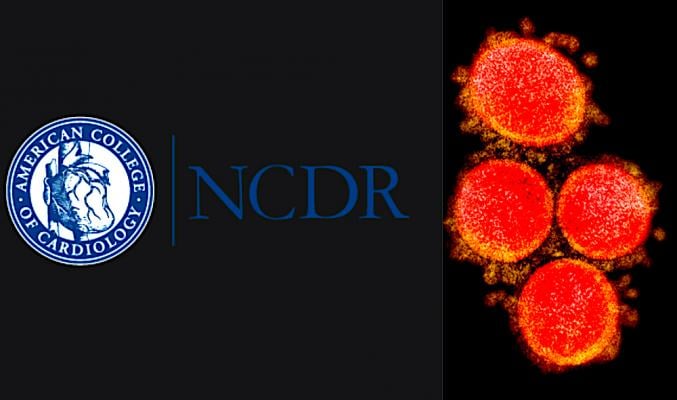
May 11, 2020 — The American College of Cardiology (ACC) will begin collecting COVID-19 (SARS-CoV-2) data through the National Cardiovascular Data Registry (NCDR) Chest Pain-MI and CathPCI registries. The ACC said the goal is to capture the relationship between COVID-19 and heart disease and maximize data on the cardiac impact of the virus.
Hospitals already participating in these registries will have the first opportunity to add to the world’s growing knowledge on the impact of the virus on cardiovascular disease and engage in the global conversation on best patient care in the pandemic, the ACC said. The registries will accept data on COVID-19 patients from the beginning of the pandemic in the U.S. early this year, allowing hospitals to join the registries to track their patient care during COVID-19.
“Registries will play a key role in understanding how this virus influences the care and outcomes for individuals with heart disease, both now and in the future,” said NCDR Management Board Chair and Chief Scientific Adviser Frederick Masoudi, M.D., MSPH, FACC. “We already collect high-quality clinical data to support hospitals in providing the highest quality care. Now it is critical to collect additional data that will provide key insights on the quality of care and outcomes of heart disease patients in the COVID-19 era.”
Watch Masoudi explain ACC cardiovascular data registrations in the VIDEO: The Role of the NCDR in Boosting Cardiology Quality Improvement.
In was clear early in the onset of the global pandemic that heart disease patients are disproportionately affected by the coronavirus and experience higher rates of mortality and morbidity. Further, patients without a history of heart disease have worse prognosis when they develop cardiac complications caused by the virus.
By adding COVID-19 data elements to existing registries, ACC and participating clinicians, hospitals and health systems can monitor the impact of COVID-19 on patients experiencing a heart attack or undergoing cardiac catheterization and percutaneous coronary intervention procedures.
With the new data module, the registries will collect data on COVID-19 status for all patients in the Chest Pain-MI and CathPCI registries, and among affected patients, also collect key biomarkers that may reflect cardiac damage in COVID-19 patients, hospital events that may reflect complications of COVID-19 and COVID-19 therapies that may have cardiac effects.
Long-term data will also allow for future research on COVID-19, including its impacts on specific racial, ethnic and gender groups, and identify where gaps and/or disparities in care exist.
“The ACC remains committed to helping its members continue to transform cardiovascular care and improve heart health.” said ACC President Athena Poppas, M.D., FACC. “We are learning every day how COVID-19 impacts our patients. By adapting our registries to answer pressing scientific questions and knowledge gaps, we can ensure that our cardiovascular care team has validated data and updated tools to provide the highest quality care particularly during these uncertain times.”
Watch Frederick Masoudi, M.D., explain ACC cardiovascular data registrations in the VIDEO: The Role of the NCDR in Boosting Cardiology Quality Improvement.


 July 31, 2024
July 31, 2024 









